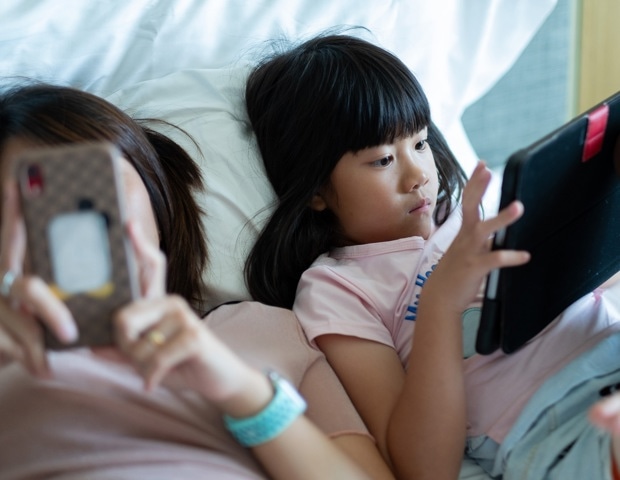
A examine has discovered that adolescents change into extremely motivated to hunt rewards after only a few hours of social isolation. This can be useful in driving them in direction of social interplay, however when alternatives for connection are restricted may cause them to pursue much less wholesome rewards like alcohol or medication.
Once we really feel socially remoted, our mind motivates us to hunt rewards. Present principle holds that it is a useful evolutionary adaptation to assist us reconnect with others.
The College of Cambridge-led examine discovered that folks of their late teenagers are very delicate to the expertise of loneliness. After only a few hours with none social interplay, adolescents make considerably extra effort to get rewards.
This elevated motivation to hunt rewards may also help with social reconnection. However when connecting with others isn’t attainable, the behaviour change is perhaps problematic – for instance, by making some individuals extra inclined to hunt out rewards equivalent to alcohol or leisure medication.
The examine discovered that the impact was stronger in adolescents who reported feeling lonelier whereas in isolation. When examine contributors have been allowed to work together with others on social media throughout isolation, they reported feeling much less lonely – and their reward-seeking behaviour modified much less dramatically because of this.
The report is revealed right this moment within the journal Communications Psychology.
“Our examine demonstrates simply how delicate younger individuals are to very brief intervals of isolation,” mentioned Dr. Livia Tomova, first creator of the report, who performed the examine whereas within the Division of Psychology on the College of Cambridge.
“We discovered that loneliness considerably will increase adolescents’ motivation to hunt out rewards – whether or not that is extra social contact, cash, or one thing else,” added Tomova, who’s now based mostly on the College of Cardiff.
Research recommend that adolescent loneliness has doubled worldwide over the previous decade. Social media has been advised because the perpetrator, however the researchers say many different adjustments in society is also in charge.
Social media can result in loneliness in some adolescents, however our examine means that this relationship is complicated.”
Professor Sarah-Jayne Blakemore, College of Cambridge’s Division of Psychology, senior creator of the report
She added: “Digital interplay with others appears to make remoted teenagers much less pushed to hunt exterior rewards, in comparison with when they’re remoted with out entry to social media. That means social media would possibly cut back among the unfavorable results of isolation – however after all we do not know what probably dangerous results it might need on the identical time.”
Whereas examine contributors obtained much less bored and lonely in isolation if they’d entry to social media, they nonetheless skilled the identical lower in optimistic temper as these with out entry.
Social interplay is a fundamental human want, and lack of it results in loneliness. Till now there was very restricted understanding of how loneliness impacts adolescent behaviour, with most scientific experiments carried out in animal fashions.
How was the examine carried out?
Researchers recruited younger individuals from the native space in Cambridge, UK, conducting intensive screening to assemble a gaggle of 40 adolescents aged 16-19 who had good social connections, no historical past of psychological well being issues, and common ranges of loneliness for his or her age group.
Individuals got preliminary exams to determine their baseline rating for every process. Then on two totally different days, they have been requested to spend between three and 4 hours alone in a room earlier than finishing the identical computer-based duties once more.
On one of many isolation days contributors had no social interplay in any respect, however on the opposite they’d entry to digital social interactions by means of their cellphone or laptop computer.
The examine discovered that when digital interactions have been out there, virtually half the contributors spent over half their time on-line – predominantly utilizing Snapchat, Instagram and WhatsApp to message their buddies.
Total, the examine discovered that contributors grew to become extra motivated to have a look at pictures of optimistic social interactions, and to play video games the place they may win cash, after being in isolation for round 4 hours. They have been additionally higher at studying tips on how to get these rewards in ‘fruit machine’-type video games.
If they may work together just about with others whereas in isolation, they reported feeling much less lonely. They have been additionally much less inclined to make an effort within the duties than once they did not have digital social interplay throughout their isolation.
Supply:
Journal reference:
Tomova, L., et al. (2025). Acute isolation is related to elevated reward looking for and reward studying in human adolescents. Communications Psychology. doi.org/10.1038/s44271-025-00306-6

